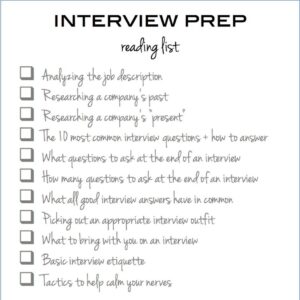Recruiters ask you job performance questions, so they can assume a performance parameter for the job you’re applying for. One of the most searched query on google regarding interviews is ” how can i improve job performance interview question”. So before heading for an interview, be prepared with answers ‘what you did well’ and ‘what you did not’.
Quick Tip for job performance questions: Never blame your previous boss or supervisor or discuss negativity. If you had a similar situation so frame it in a positive way professionally.
Whenever you are talking about the performance, so be sure to connect it with the correct skills-set recruiter looking for.

Let’s look at some of the job performance questions , you may be asked & how should you respond to them wisely:
Table of Contents
ToggleJob performance questions
1). Why were you not promoted at your last job?
When you’re looking for a new job, there may be 2-conditions either you’re looking for a higher position or you’re looking for the same position at which you were working in the last company.
In the same position case, the recruiter may ask you ‘why were you not promoted at your last job?’ to understand the purpose of the job change.
Actually by asking you job performance questions, the interviewer wants to understand your strength & weakness, any skill or qualification you are missing, and trying to determine how they will affect your job performance, or if your current job performance is poor or under-rated.
Quick Tip for job performance questions: There may be multiple reasons why you might not be promoted at the last company, So don’t be defensive or nervous while answering such questions. The best way to defend such questions is to answer straightforward logical reasons.
Reasonable Factors: Relocation required for promotion, where you are not suitable currently due to family issues.
Restructuring: Moving to another department for a senior position where your skill-set would be a waste, so not interested.
2). What do people criticize about you?
Don’t be feel uncomfortable or unwilling to answer such questions. Plan ahead & be prepared for what you’re going to say on asking similar questions.
Interviewer judge your emotional level & how you can handle criticism in office politics & off working environment.
Quick Tip for how can i improve job performance interview question
: Be a strong personality and project yourself to face criticism in front and never be nervous from such questions.
Be very specific to this question and never show you’re consistently receiving criticism at your previous job. Keep one thing in mind, everybody faces some criticism either in beginning or on achieving some higher position, so this is natural. Recruiter asking such questions to judge the level of composure and confidence level.
While crafting your answer for job performance questions, emphasize that criticism or weakness will never affect your job performance. And play smart, You should show already one or two weaknesses in your answer those should consider as strengths for your new job and keep communication professionally.
3). What makes you angry?
This is not considered a common interview question in job performance questions, but sometimes in flow recruiter comes to this question also. When you’re giving an interview for some customer or co-worker interaction job, so these insights help the interviewer to determine how would you handle personal emotions in a stressful situation in the workplace without affecting your job performance and what makes you easily angry?
This is a difficult question and here are few tips while crafting your answer for such awful questions:
So your answer should craft using 2-components i.e the situation that angered you & the process of how you processed the event & handled your anger in that particular situation.
Example:
You can fit a negative vibe into a positive frame like you can discuss the misuse of company resources by co-workers, that doesn’t fit right with you.
4) What problems have you encountered at work?
This is a very common question, whether you are a least or high experience person. Recruiter really wants ‘what kind of problems you encountered at work and how did you deal with them?’
This question gives you the opportunity to showcase the problems and challenges you have tackled in your previous job. If you received any reward then don’t forget to mention it here.
Be prepared for this answer in advance, while crafting your answer make sure to contain 2-components like ‘Describe Problem’ & ‘How you resolved’. While talking about the resolving part don’t be alone of responsibility for the whole problem-solving. Elaborate your problem & project in a team work-frame.
5). How would you motivate your team?
While interviewing recruiter is interested to get insights into your teamwork & client detailing capabilities. So you should be prepared for the questions like ‘How would you keep motivating your team?’
This question is generally asked when you’re looking for a supervisor, team leader, or project manager, etc position. This question helps the interviewer to understand your leadership & interpersonal style skills.
The best way to answer such questions is to craft your answer in advance & include some examples with situation, task, action & result format. This would give you an opportunity to pitch your relevant experience for the job profile.
6). How do you evaluate success?
During your job interview questions, the interviewer may ask ‘How do you evaluate success? Or How you define success?’. Purpose of asking this question to determine the motivation, self-driven, determination, enthusiasm, and most important your shared collaborative vision.
Not only this but employers get insights into your personality, body language, mindset, future goals & ethics.
Quick Tip: Overall purpose of this question, is to find a candidate who cares & maintains personal & professional standards in his life.
While crafting answers for such questions, put some examples on how you got a chance to lead the team for some project and how could you make it successful, and what you learned from that experience.





